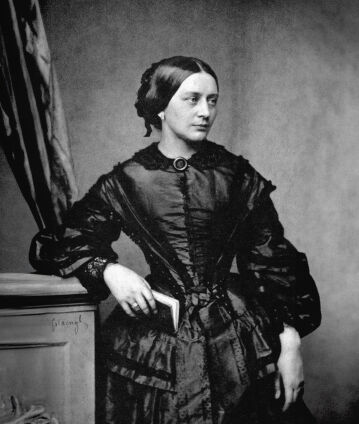Clara Schumann
composer
The pianist Clara Schumann, née Wieck, who made her debut at the age of nine at the Gewandhaus in Leipzig, was able to establish herself on the international concert stages beyond her days as a child prodigy. Her appointment as Königliche und Kaiserliche Österreichische Kammervirtuosin (Royal and Imperial Austrian Chamber Virtuoso) in Vienna marked the start of a breathtaking career. For over sixty years, she left her mark on the international musical scene as a travelling pianist. Along with Franz Liszt, she was the first to present Beethoven’s piano sonatas unabridged in the concert hall, starting in 1837.
Clara Wieck was born to a family of musicians in Leipzig in 1819. Her father Friedrich Wieck provided an exclusive private education with a reformist pedagogical approach and, as piano teacher and impresario in one, was the driving force behind her career. Against her father’s wishes, Clara married the composer Robert Schumann in 1840. The couple planned to build up a community of artists along the lines of the early Romantic model. In fact, the composing virtuoso, who gave birth to eight children between 1841 and 1854, initially managed to balance career and family. However, the artistic balance of power gradually shifted to her husband – which resulted in constraints for Clara. After crisis-ridden years in Leipzig and Dresden, marked by illness, financial worries and the revolution of 1848, the family moved to Düsseldorf, where Clara Schumann’s last compositions were written. After Robert’s death in 1856, she concentrated exclusively on her work as a pianist and embarked on her first tour of England that same year. Against a background of health problems, she accepted a position at the prestigious Hoch’sches Konservatorium in Frankfurt am Main. At the beginning of 1896, Clara Schumann suffered two strokes, from whose consequences she never recovered.